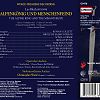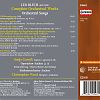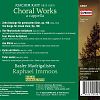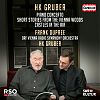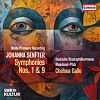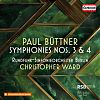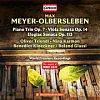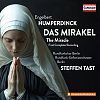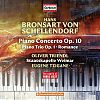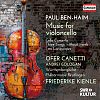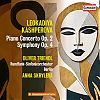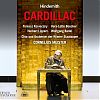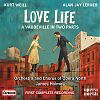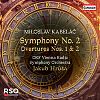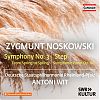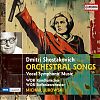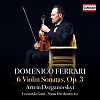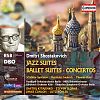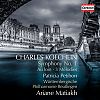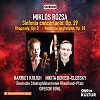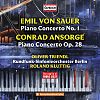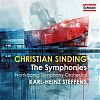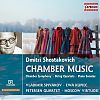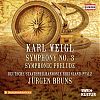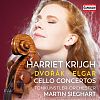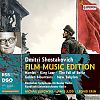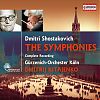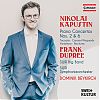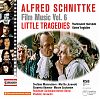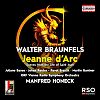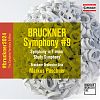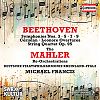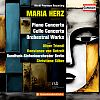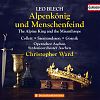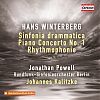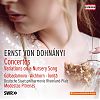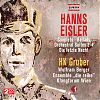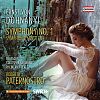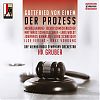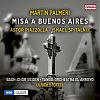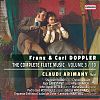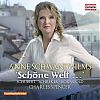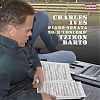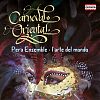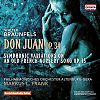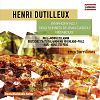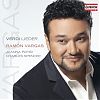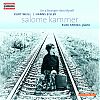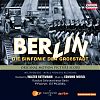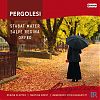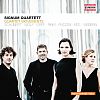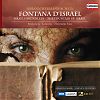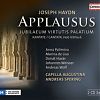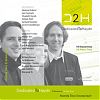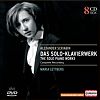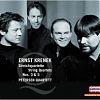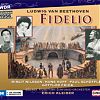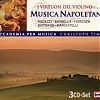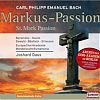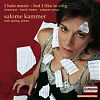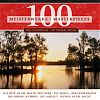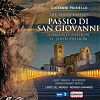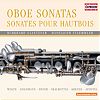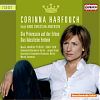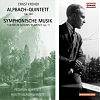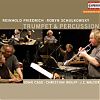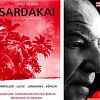cd

BOHUSLAV MARTINŮ: Larmes de couteau · Comedy on the Bridge
Elena Tsallagova Esther Dierkes · Björn Bürger · Staatsorchester Stuttgart · Cornelius Meister
Martinů is a musical chameleon. On the one hand, there’s an unmistakable from to his output, on the other hand, he would adopt and adapt just about any style that happened to be en vogue or to his liking. These two one-act operas, presented on record for the first time in their respective versions, are a case in point. There’s that cracking little shocker that is Knife Tears (in its original French version), in which Martinů set an absurdist libretto to the sounds of Le Jazz Hot, Stravinsky, and anything in between. This is juxtaposed with the English version of his Comedy on the Bridge (the one that helped this work to brief fame), which is wildly different (if anything more in the style of Hanns Eisler), despite being separated by a mere seven years.
Youtube
Weitere Bilder

ENGELBERT HUMPERDINCK: Der Blaue Vogel
Juri Tetzlaff · Rundfunkchor Berlin · Rundfunk-Sinfonieorchester Berlin · Steffen Tast
In 1908, Maurice Maeterlinck wrote his play The Blue Bird (L’Oiseau bleu). Having proved a good source of operatic subjects before (Pelléas et Mélisande, Ariane et Barbe-Bleue), it is no surprise that composers jumped at the opportunity to write music to this latest. The French composer Albert Wolff made an opera of it that, though premiered at the MET, has since been forgotten. But even before that, in 1912, Max Reinhardt put it on as an adapted Christmas play in Berlin and he had none less than Engelbert Humperdinck write the incidental music to it. The music was never published until Steffen Tast found the score and salvaged it for us to hear. A sweet story and sweeter still music by Humperdinck newly discovered? Why, that’s in and of itself as though it was Christmas!
Hörprobe
Weitere Bilder

Leo Blech: Alpenkönig und Menschenfeind
Collett · Saemundsson · Opernchor Aachen · Sinfonieorchester Aachen · CHRISTOPHER WARD
Around 1902 Leo Blech nabbed the subject of the “original romantic-comic magic” play by Viennese theater manager/actor/playwright Ferdinand Raimund, had it streamlined, and turned it into his fifth opera. A cantankerous misanthrope terrorizes family and servants with his paranoid mistrust. He’s only cured when faced with his own behavior courtesy of supernatural role reversal. Highbrow opera meets folksy farce with unexpectedly gorgeous, splendidly orchestrated music somewhere between Wagner and Humperdinck. The premiere at the Dresden Court Theater was a sensational success. Then all of Blech’s music was banned and once the Nazi horror was over, it never came back. Now you can hear what we missed.
Hörprobe
Youtube
Weitere Bilder

LEO BLECH (1871-1958) Orchestral Works
Sonja Gornik · Opernchor Aachen · Sinfonieorchester Aachen · Christopher Ward
The closest Leo Blech (1880–1959) gets to fame these days is being mistaken for Ernest Bloch. Actually, some might still remember his seminal work as an opera conductor in Berlin, where he worked for almost half a century (except for the Nazi years). But his compositions – either operas or involving the voice in some other way – have disappeared from the repertoire. What a shame, because his music is, while less probing than that of his contemporary Bloch’s, very much charming in the style of, say, Humperdinck or Rheinberger.
Hörprobe
Youtube
Weitere Bilder

JOACHIM RAFF Choral Works a cappella
Basler Madrigalisten · Raphael Immoos
Having written 11+ very fine romantic symphonies but never getting them played in concert? That’s Raff. Joachim Raff, sometime assistant and orchestrator of Franz Liszt’s. If the symphonies haven’t yet quite done the trick, maybe his acapella music will. It shows Raff at his most diverse and imaginative best. Vacillating between small-r republican liberalism and intellectual Catholicism, he wrote sacred works and secular political songs of awakening alike. Translated into music, this meant that he drew on the romantic vernacular of the time but could combine it with his very own take on the Cecilian revival of renaissance polyphony in a way rivaled only decades later, by Hans Pfitzner.




